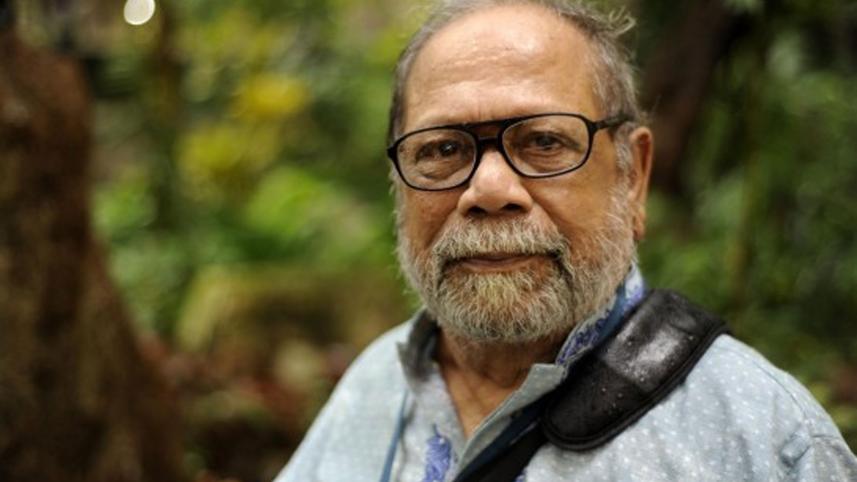Murtaja Baseer’s legacy of creative activism

We are deeply saddened by the passing away of legendary artist, poet, litterateur and Language Movement veteran Murtaja Baseer. He was undergoing treatment at the ICU of a city hospital for severe respiratory problems and reduced oxygen consumption rate, along with other health complications. Doctors also confirmed that he was Covid-19 positive. The artist passed away in the hospital on the morning of August 15, creating an irreparable void in our art and culture arena.
Born in 1932 to Dr Muhammed Shahidullah and Marguba Khatun, Murtaja Baseer would regard himself as "an artist by chance". In his six-decade-long career, Baseer was continuously experimenting and innovating, looking for new ideas to work with, which set him apart from many of his peers. Wings of Butterfly, The Wall, and Epitaph for the Martyrs are the kinds of work that depict the versatile genius of the maestro.
He became an active member of the student wing (Chhatra Federation) of the Communist Party in 1947, when he was a student of class nine. He zealously took part in the political campaigns of the Communist Party in 1950 and was later sent to jail for five months. Baseer was also at the forefront of the Language Movement in 1952. Roktakto Ekushey, a painting by him on the incident of Ekushey February is considered the first painting on our Language Movement.
The art maestro believed that his adherence to the communist ideology helped him paint on important social causes. While his series The Wall and Wings of Butterfly, created in the pre-liberation period, portrayed the socio-political turmoil that engulfed the nation at the time, the series Epitaph for the Martyrs, painted during the Liberation War, was dedicated to the martyrs of 1971. As a socially responsible artist, he tried to capture the struggles of the people around him. His friends and peers remember him as an artist uncompromising to his creations as well as a vibrant, charming and generous human being. His students remember him as a nurturing mentor who never imposed any ideas on them but helped them find their own concepts instead.
Murtaja Baseer occupies a unique place in the history of modern art of Bangladesh. He touched upon every significant chapter of the glorious history of our country through various art forms, including paintings, films and poetry. His creations will forever remain a source of inspiration for the present and aspiring artists of the future generations. May his soul rest in peace.



 For all latest news, follow The Daily Star's Google News channel.
For all latest news, follow The Daily Star's Google News channel.
Comments